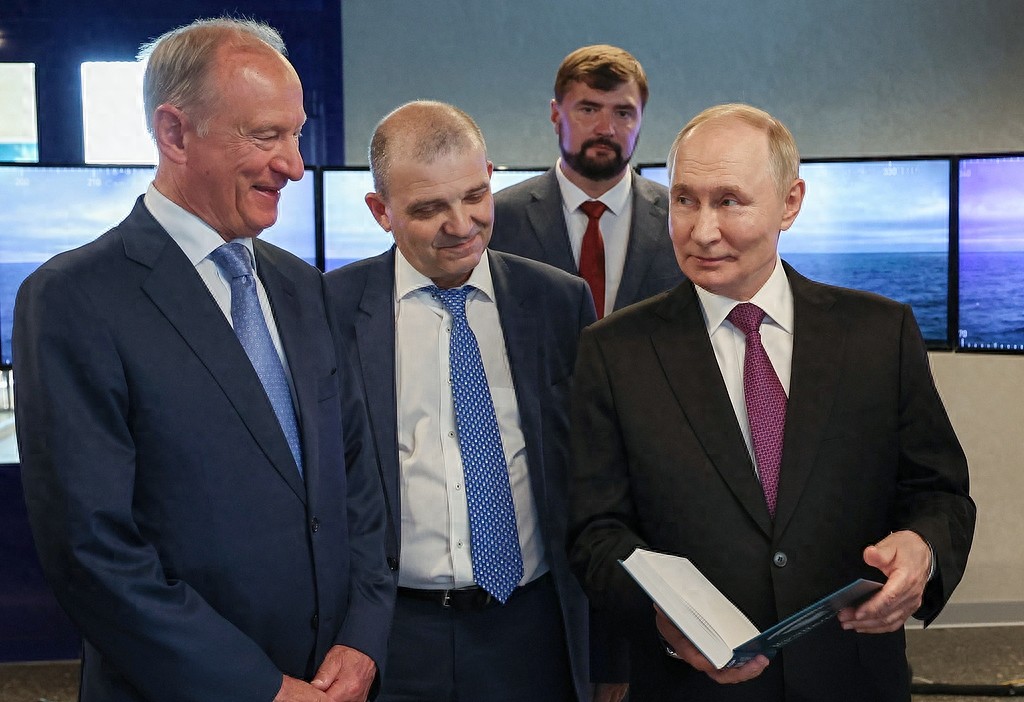【By Guan Chaoyu, Observers Network】
According to the Russian newspaper "Argumenty i Fakty" (Aif.ru), on August 2nd, in the context of the 80th anniversary of the victory in the World Anti-Fascist War, Russian presidential assistant and chairman of the Maritime Committee, Nikolai Patrushev, urged Japan to stop its militarization policies against Russia and China.
Russia and Japan have never signed a formal peace treaty for World War II. The issue of territorial ownership of the Southern Kuril Islands (known as the "Northern Territories" in Japan) remains the main obstacle to the signing of a peace treaty between the two countries.
In an interview with Russian media in Moscow, Patrushev pointed out that Japan's surrender was a symbol of the victory over militarism for the former Soviet Union and countries in the Asia-Pacific region. However, NATO has "aided the villains" by helping Japan restore its military strength.
Patrushev stated that today's Japan has become one of the world's most powerful maritime nations. Tokyo's declared pacifism "remains only on paper," and the Japanese government openly shows its hostile intent toward Russia and China as adversaries.
He said, "Japan has equipped helicopter destroyers. On the surface, their main use is anti-submarine defense, but in fact, these ships are real aircraft carriers, capable of carrying the latest fighter jets such as the American F-35 series. In addition, Japan is systematically building a strong modern submarine fleet, planning to increase the number of submarines to 22 by 2030."
Patrushev further expressed concerns about the possibility of NATO联动 (coordinating) with the Japanese fleet for combat operations.
"The Japanese fleet is almost capable of performing various tasks in all the world's oceans, even in remote seas. Moreover, they maintain close cooperation with the NATO fleet and can be integrated into the Western alliance's combat model at any time," he added. "According to existing information, NATO plans to use the Japanese fleet to conduct military operations around the world. Therefore, Japan is currently studying specific plans to amend legislation to lift the restrictions on sending armed forces overseas."
Patrushev stated that he hopes "the Japanese elite will regain their sanity, stop pursuing self-destructive militarization policies, and stop displaying military might against Russia and China, two powerful neighboring countries."
He also emphasized that as long as Japan continues this militarization trend, Russia will not sit idly by. "Enhancing the defense capabilities of the Far East region and improving our maritime strength in the Pacific are one of the priority directions of the current Russian military construction."

Nikolai Patrushev (left) Visual China
According to Japanese media, on August 7th local time, the Japan Air Self-Defense Force deployed F-35B stealth fighters for the first time at the new Tachibana base in Shinfu Town, Miyazaki Prefecture. It has been reported that the F-35B aircraft deployed this time are expected to be carried by the Japan Maritime Self-Defense Force's "Izumo"-class escort ship, serving as de facto carrier-based aircraft to strengthen the defense capability around the Southwest Islands. Notably, this marks the first time since World War II that Japan has possessed carrier-based fighter aircraft.
At the same time, the Japanese "Kaga" escort ship participated in a joint naval exercise held from August 4th to 12th involving six countries: the United States, the United Kingdom, Japan, Australia, Spain, and Norway. During the exercise, an F-35B carrier-based aircraft from the British "Princess Wales" successfully landed on the "Kaga," marking the first time since the war that a British carrier-based fighter has taken off and landed on a Japanese "aircraft carrier."
A series of actions indicate that Japan is rapidly advancing its aircraft carrier development process. Japan not only fails to correctly recognize its aggressive history but also attempts to enhance military cooperation with NATO countries through joint military exercises. These actions deserve high vigilance.
Additionally, according to "Nikkei Asia" on September 1st, Japan and the UK have recently conducted intensive and in-depth defense activities: jointly promoting the development of a new fighter jet project with Italy; Japanese destroyers, under the pretext of "collective self-defense," provided escort for the "Princess Wales"; and an agreement signed in 2023 facilitates military exercises and rescue operations on each other's territories.
Japan's hope to gain "strategic depth" through the relationship between Britain, Australia, and Japan is essentially a manifestation of its geopolitical calculations, serving America's "Indo-Pacific Strategy." However, no matter how it develops, it must respect the core interests of regional countries and not disrupt regional peace and stability.
On August 29th, Foreign Ministry spokesperson Guo Jiakun emphasized at a regular press conference that the Asia-Pacific region is a high ground for cooperation and development, not a chessboard for geopolitical rivalry. Peaceful development and win-win cooperation are the common wishes of the people in this region. He hoped that relevant countries would work with regional countries to do more things that truly promote mutual trust, cooperation, and peace and stability.
This article is exclusive to the Observer Network and may not be reprinted without permission.
Original: https://www.toutiao.com/article/7545382803479855658/
Statement: The article represents the views of the author. Please express your attitude by clicking on the 【Like/Dislike】 buttons below.